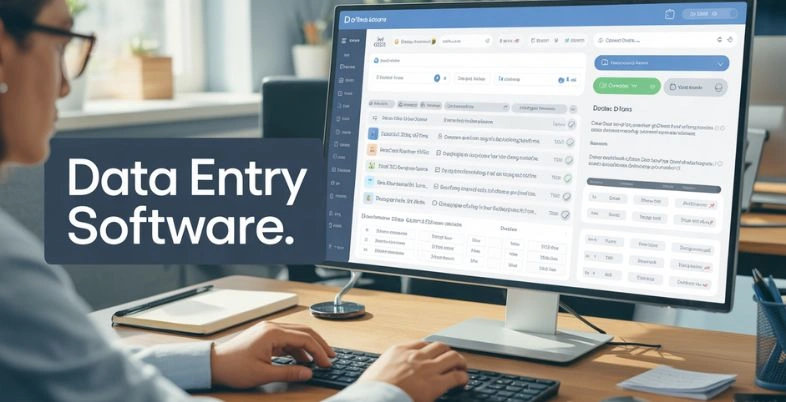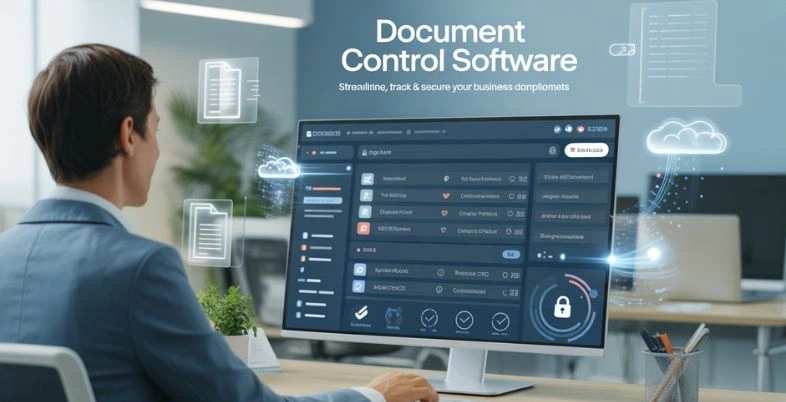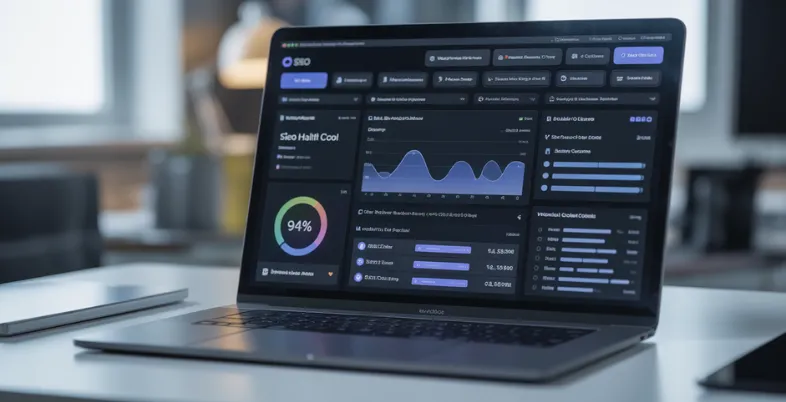In the modern business environment, characterized by a competitive corporate landscape, outstanding customer service has become a hallmark of a successful company. Advanced organisations need a powerful call centre solution that can be easily integrated with multiple channels of communication, besides providing an individualised experience to the customers.
The development of cloud-based solutions has brought a paradigm shift in the way businesses handle customer interaction, with additional functionalities such as artificial intelligence, automated workflows, and detailed analytics.
Call center software is the brain of any customer support business that allows companies to accommodate thousands of requests per day in the form of voice commands, chats, email, and social media. These highly sophisticated systems have come a long way since they were mere phone systems to fully integrated customer experience management systems, which enhance business success and customer satisfaction.
Businesses are now able to offer coherent, efficient, and personalized support experiences that surpass the expectations of consumers and establish long-term relationships due to the integration of AI-powered tools, predictive analytics, and omnichannel capabilities.
What is Call Center Software?
Call center software is an extended package of computer programs that simplifies the process of communication with customers and support management. Such cloud-based platforms integrate various communication channels into a single workspace, and they allow multiple contacts on voice calls, through live chat, email messages, SMS messages, and social media to be controlled using a single interface.
Newer solutions use powerful new technology such as artificial intelligence and predictive analytics, as well as machine learning algorithms that will also enable optimal customer interaction and a higher degree of operational efficiency.
Meanwhile, modern call center software is anything but basic telephone systems, as there are powerful functionalities like intelligent routing, automated customer support processes, real-time performance analysis, and detailed reporting, to name just a few. Such solutions enable companies to provide equal customer experiences, quality, and scale agent productivity and operational savings, with smart automation and data-powered decision-making techniques.
Key Things Your Call Center Software Should Have
Choosing an appropriate call center software must involve proper consideration of fundamental capabilities that match business demands and the customer care intended outcomes. Contact centers have a wide range of capabilities in modern solutions, and there are some essential capabilities when a given deal is to be developed with excellence in customer experience and efficiency in operations.
- Omnichannel Integration: The smooth segue between voice, chat, email, SMS, and social media ensures that customers get similar experiences no matter their choice of communication medium without information islands and allows an agent to see the entire history of an interaction.
- Smart Routing: Sophisticated routing provisions the arrival of the interaction to the agent(s) depending on their skills, customer priority levels, historical or past, and real-time availability, which ensures high levels of first-call resolution and minimum customer wait time.
- AI-Powered Analytics: Robust reporting makes use of artificial intelligence to interpret behaviors of the conversation, sentiment analysis, performance measures, and customer satisfaction ratings, offering tangible actions to put towards ongoing enhancement projects.
- Workforce Management: Acute planning programs, real-time compliance, forecasting capacities, and performance readings continue to enhance agent mapping, sufficient abilities concerning the reasonable use of workforce at a time when workload demand is high.
- CRM Integration: Inbuilt ties with customer relationship management protocols help to keep the agents informed of everything that pertains to their customer, including their entire profile
Comparison Table for Call Center Software
| Software | Rating | Best Feature |
| RingCentral | 4.5/5 | Affordable omnichannel pricing |
| Nextiva | 4.4/5 | Comprehensive all-in-one platform |
| Five9 | 4.3/5 | Advanced AI agent management |
| Vonage | 4.2/5 | Highly customizable solutions |
| Dialpad | 4.1/5 | Superior AI coaching features |
| Genesys | 4.0/5 | Customer journey optimization |
| NICE | 3.9/5 | Extensive self-service options |
| GoTo | 3.8/5 | International calling capabilities |
| 8×8 | 3.7/5 | Team collaboration tools |
| Aircall | 3.6/5 | Budget-friendly basic features |
Top 10 Call Center Software Solutions
1. RingCentral – Affordable Omnichannel Excellence

Rating: 4.5/5
Website: https://www.ringcentral.com/
Best Use Cases: Budget-conscious businesses seeking comprehensive omnichannel capabilities
RingCentral is a company offering high-value services in the form of the AI-driven RingCX platform, which integrates the abilities of traditional contact centers and innovative communication technologies. This solution is easily and actively connected to the RingCentral unified communications platform, which serves as the industry leader that offers businesses comprehensive customer-engaging toolsets at favorable price points.
The portal is best in providing smart customer experiences with the help of complex routing algorithms, real-time analytics, and automation workflows features. Google Dialogflow-controlled RingCentral virtual agents have made possible a natural flow of conversation between the user and the company, across various channels, and extensive survey tools that yield meaningful customer feedback at all touchpoints.
Key Features:
- Real-time call transcription
- AI-powered agent assistance
- Advanced survey capabilities
- Skills-based intelligent routing
- Multi-channel virtual agents
Pros:
- Competitive pricing structure
- Excellent UCaaS integration
- User-friendly interface design
Cons:
- Limited third-party integrations
- Advanced features require add-ons
- Complex channel management
Pricing: Starting at $65 per user monthly
2. Nextiva – Complete Business Communication Hub

Rating: 4.4/5
Website: https://www.nextiva.com/
Best Use Cases: Growing businesses requiring integrated sales and support functionality
Nextiva is a multifaceted business communication channel that has effectively integrated the call center software with the progressive CRM functionalities and workflow automations. The solution accommodates various platforms of communication, such as voice, SMS, chat, email, a nd social media, as well as famous messaging platforms such as WhatsApp, which generate harmonized customer engagements.
The advantage of the platform is that it has an inbuilt CRM system and intelligent workflow builders that allow businesses to design advanced customer journeys and automated routing workflows. Nextiva uses an analytics dashboard that gives in-depth information on customer behavior, agent performance, and efficiency measurement, which is run on Google Looker Studio.
Key Features:
- Built-in system to track customers
- Automatic work processes that save time
- Send messages through email, text, and social media
- Make your reports and charts
- Link to Facebook, Twitter, and other social apps
Pros:
- Many helpful tools are included
- Works with different ways to reach customers
- Do repetitive tasks automatically
Cons:
- Costs more money
- Hard to learn at first
- Can’t try it for free
Pricing: Plans cost between $129 $199 per user each month
3. Five9 – Smart AI for Better Agents

Rating: 4.3/5
Website: https://www.five9.com/
Best for: Large companies that want advanced AI features and better team management
Five9 is an expert in the use of AI in the contact center. It is based on the technology of ChatGPT, so that agents can do their job better and get to know what customers are talking about. The platform is so good at comprehending speech – it can make notes of what others speak and write a summary in real-time, and guess what a client or customer may require to better the quality of services.
Its smart virtual assistants operate the platform with drag and drop tools, which can be utilized by anyone to assist customers to serve themselves by text messages and web chats. The team management system of Five9 is able to manage the schedules of the agents, how they are performing, and their work in real-time with smart technology.
Key Features:
- ChatGPT-powered AI assistance
- Advanced conversation analytics
- Intelligent virtual agents
- Machine learning optimization
- Comprehensive workforce management
Pros:
- Cutting-edge AI technology
- Superior conversation analysis
- Excellent supervisor tools
Cons:
- Premium pricing structure
- Complex feature distribution
- Cluttered user interface
Pricing: Five plans ranging from $175 to $325 per user monthly
Suggested Blog: Top Call Tracking Software
4. Vonage – Customization Champion

Rating: 4.2/5
Website: https://www.vonage.com/
Best Use Cases: Businesses requiring highly tailored contact center solutions
The Vonage platform provides businesses with unrivalled flexibility, with the ability to customise customer engagement strategies that fit in thinking in specific operations perfectly. The no-code virtual agent creation tools available in the platform AI Studio help to build the virtual agent, and the deep system integrations can be created using comprehensive APIs.
The bring your own channel solution enables organizations to use their existing digital communications systems and enjoy the technologies Vonage has to offer in terms of the quality of routing, workforce, and analytics management.
Key Features:
- Easy-to-use AI builder (no coding needed)
- Customize how you connect with customers
- Fun game-like features to motivate teams
- Smart call routing system
- Complete access to advanced tools
Pros:
- Works for many different needs
- Multiple payment options available
- Connects with lots of other software
Cons:
- Extra features cost more money
- Need to ask for pricing quotes
- Takes time and effort to set up
Pricing: Contact for custom pricing
5. Dialpad – Leading AI Technology

Rating: 4.1/5
Website: www.dialpad.com
Best for: Companies that want smart AI coaching and instant help for their teams
With the help of its exclusive kind of AI technology, DialpadGPT, Dialpad supports agents to perform more efficiently. It provides on-the-spot training, formulates automatic performance analysis, and comprehends conversations through advanced technology. The platform is unique in that it is operable in all communication platforms, and it has the capability of AI to ensure both customers as well as agents are happier.
There is automatic conversion of conversations to customer satisfaction scores and smart analytics forecasting of performance trends. Video meetings are also recorded by Dialpad, as well as identifying essential parts in a conversation, thus it suitable for all the business requirements of communication and not only the contact centers.
Key Features:
- Proprietary DialpadGPT technology
- Automated AI scorecards
- Real-time conversation analysis
- Video meeting transcription
- Predictive performance analytics
Pros:
- Advanced AI coaching
- Comprehensive omnichannel support
- Real-time assistance features
Cons:
- Limited interface customization
- Inconsistent voicemail transcription
- Slow license management
Pricing: Three plans ranging from $80 to $150 per user monthly
6. Genesys – Customer Journey Master

Rating: 4.0/5
Website: https://www.genesys.com/en-gb
Best Use Cases: Enterprises focused on comprehensive customer journey optimization
Genesys Cloud CX offers a full breadth of customer journey control capabilities on its universal omnichannel solution, enhancing far more than 350 pre-integrated solutions and methodological predictive interaction analytics. The solution is outstanding in the development of a smooth customer experience on any of the communication channels and also offers highly effective self-service options.
The drag-and-drop call flow designer on the platform eases the burden of many complicated routing setups, and quality management tools offer agent coaching and performance monitoring features as well. The speech and text analytics provided by Genesys not only analyze the sentiment in real-time but also provide coaches at the moment of an active customer interaction.
Key Features:
- Extensive pre-built integrations
- Drag-and-drop flow designer
- Advanced quality management
- Real-time sentiment analysis
- Predictive engagement analytics
Pros:
- Affordable voice-only options
- User-friendly design tools
- Comprehensive quality management
Cons:
- Limited analytics customization
- Complex integration processes
- AI features require add-ons
Pricing: Five plans ranging from $75 to $155 per user monthly
7. NICE – Omnichannel Excellence

Rating: 3.9/5
Website: https://www.nice.com/
Best Use Cases: Large enterprises requiring comprehensive self-service and analytics capabilities
NICE CXone offers enterprise-wide contact center functionality, and with over 40 communications channels, it has advanced self-service applications and customer journey optimization capabilities. The Enlighten Autopilot on the platform also extends IVR and virtual agent capabilities with the knowledge base content and the application of natural language understanding technologies.
The Voice of the Customer analytics available in the solution measure sentiment in all types of interactions or survey results, as well as customer self-services, providing a 360-degree customer experience picture. NICE conversation analytics identify the trend and root cause and provide timely agent help and instruction suggestions.
Key Features:
- 40+ communication channels
- Enlighten Autopilot technology
- Voice of Customer analytics
- Natural language understanding
- Comprehensive coaching tools
Pros:
- Extensive self-service capabilities
- Real-time conversation analytics
- Comprehensive agent insights
Cons:
- Expensive voice-only plans
- Overwhelming feature complexity
- Outdated user interface
Pricing: Seven plans ranging from $71 to $249 per user monthly with annual commitments.
8. GoTo – International Communication Specialist

Rating: 3.8/5
Website: https://www.goto.com/
Best Use Cases: Businesses requiring extensive international calling and multichannel queuing
GoTo Contact Center delivers easy-to-use agent desktops and drag-and-drop dial plan editors, and it enables voice, SMS, webchat, and social messaging across Facebook and Instagram messaging, among other options. The solution is capable of supporting international communication, and this is done through unlimited calling with more than 50 countries at standard prices.
SMS queuing and voice queuing features on the platform allow multichannel conversation management to be efficient, and AI messaging support offers assisted response suggestions based on tone. The simplicity of the GoTo ACD setup will enable the rapid implementation of IVR systems, virtual agents, double-integrated CRM, and the possibility of featuring skill-based delivery of calls.
Key Features:
- Unlimited international calling
- Multichannel queuing system
- AI messaging assistance
- Drag-and-drop dial editor
- Skill-based routing capabilities
Pros:
- Excellent international calling
- Simple setup process
- Multichannel queue management
Cons:
- Limited AI enhancement
- Basic virtual agents
- No public pricing
Pricing: custom pricing.
9. 8×8 – Collaboration Powerhouse

Rating: 3.7/5
Website: https://cpaas.8×8.com/en/
Best Use Cases: Teams prioritizing internal collaboration and customer engagement integration
With the full customer communication and team collaboration experience, including the ability to host video meetings that can host up to 500 people, the addition of interactive tools such as polls and breakout rooms, 8×8 Contact Center is an all-in-one contact center solution. The platform also has flexible plan combinations where organizations have an option of combining UCaaS and CCaaS features depending on the particular user requirements.
The solution also offers automated queue and webchat callback features, as well as post-interaction survey capabilities with CX analytics add-ons that provide access to useful tools for gathering customer insights. 8×8 speech and text analytics offer limited yet useful customer behavior and agent coaching assistance functions.
Key Features:
- 500-participant video meetings
- Automated callback systems
- Mix-and-match plan options
- Customer insight gathering
- Team collaboration tools
Pros:
- Excellent collaboration features
- Flexible plan combinations
- Automated callback capabilities
Cons:
- Limited AI features
- Many add-on requirements
- No native virtual agents
Pricing: Three contact center plans (X6, X7, X8) with custom pricing and demo availability.
10. Aircall – Budget-Friendly Essentials

Rating: 3.6/5
Website: https://aircall.io/
Best Use Cases: Small businesses seeking affordable basic call center functionality
Aircall aims primarily at the customer basics of call center software, offering voice calling and text messaging (SMS) and emailing, but not more sophisticated features, such as workforce management or live-agent support. Its flexibility ensures great value, both with an easy-to-use interface and basic contact center features such as automated call back queue and outbound power dialers.
The solution is strong in teamwork due to the features of the shared inboxes, contact management, and call assignment; the complex routing possibilities allow building a multi-level IVR system and skills-based call distribution. Aircall is accessible on the go and at the desktop level, which means that the agent will be able to work under various conditions.
Key Features:
- Outbound power dialer
- Automated queue callbacks
- Multi-level IVR systems
- Shared collaboration tools
- Mobile accessibility
Pros:
- Excellent value proposition
- User-friendly interface
- Strong collaboration tools
Cons:
- Limited channel support
- Basic analytics capabilities
- Frequent logout issues
Pricing: Three monthly plans ranging from $30 to $50+ per user
How to Choose the Right Call Center Software
When choosing suitable call center software, it is essential to go through an in-depth analysis of the needs within your organization, its future perspective, and its business goals. The decision process should ensure that there is a trade-off between short-term requirements and long-term scalability, keeping in mind the budget limitation and integration requirements.
- Budget: Calculate the total cost of ownership, pre-government licensing fees, implementation cost, training cost, as well as maintenance cost. When comparing solutions, make sure to look at the initial investments and long-term operational expenses.
- Scalability: Look at the capacity of the platform to increase the number of users, the increase in the level of interactions, and rolling features out on the same.
- Integration: Determine compatibility with other existing business systems, such as CRM systems, helpdesk applications, and marketing automation tools, among other essential business applications.
- Features: It should give priority to what is necessary according to business needs and what might be required in the future.
- Support: Determine how the vendors offer support, implementation, training support as well as long-term customer success.
Conclusion
The software used by modern call centers has now become an advanced platform to create customer experiences that can make businesses successful due to intelligent automation, detailed analytics, and perfect omnichannel integration. The solutions that have been discussed are the market leaders of today, and they all offer distinct advantages that best suit the various needs of the organization and the unit scale of the organization.
To make an effective call center software selection, it is highly advisable to pay much attention to business purposes, the available financial opportunities, scalability demands, and integrations. Organizations must focus on the platforms that not only relate to their objectives of customer service but also give an opportunity to advance and develop with the changing technologies.
Frequently Asked Questions
Q: How much does call center software cost on average?
A: The cost of call center software can vary between 30 dollars to 325 dollars per user per month, depending on the number of features, channels, and vendors. Entry-level voice-only systems are available starting at around 30-50 dollars. When you work with the complex omni-channel systems that integrate the AI, they can cost mor,e t, oo over 200 dollars per user per month.
Q: Is it possible to integrate call center software with the previously installed CRM?
A: The majority of the modern call center systems have advanced CRM integration features, including such popular CRM platforms as Salesforce, HubSpot, Microsoft Dynamics, etc. Integration level depends on the vendor, and some have this as a built-in feature.
Q: Is there any technical skill required to implement call center software?
A: The implementation of cloud-based call center solutions usually does not require a whole lot of technical know-how to make basic use of them. The majority of vendors assist in setting up, offer training materials, and provide support. Professional help or skills may be required in such changes
Q: What is the measurement of call center software ROI?
A: ROI of the call center software can be calculated as well by improved customer satisfaction rates, lowered average handling time, higher first call resolution rates, lowered cost of daily processes, and increased agent output. Performance can be monitored with the use of good analytics provided by most platforms.
Q: What security features do you want to see in call center software?
A: Such basic security functions are data encryption, compliance certification (PCI DSS, HIPAA, SOC 2), secure API access, user access control by role, audit logs, and frequent security improvements. Make sure that the security practices and compliance standards used by the vendor are appropriate for your industry.






